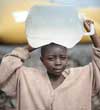The Commonwealth: Promises, promises

With this year's Commonwealth Heads of Government Meeting (CHOGM) fast approaching – in the year of the 60th anniversary of the institution no less – the Commonwealth needs to do much more in support of civil society and the protection of human rights, writes R. Iniyan Ilango.
This year’s Commonwealth Heads of Government Meeting (CHOGM) takes place in the year of the 60th anniversary of the Commonwealth. For the past six decades, notably since the 1970s, every CHOGM has seen the Commonwealth taking a progressive stance on human rights. Eighteen years ago, at the 1991 CHOGM in Harare, the Commonwealth reiterated past promises and enshrined them in the Harare Declaration as a 'fundamental political value' of the Commonwealth. Four years later in 1995 the CHOGM in New Zealand created the Millbrook Action Plan to operationalise the Commonwealth’s fundamental values and ushered in the Commonwealth Ministerial Action Group (CMAG), a group mandated to act on serious and persistent violations of the Commonwealth’s fundamental values. Fourteen years have passed since then, yet much of the Commonwealth, which contains about a third of the world’s population, is still bedevilled by egregious human rights violations and lack of freedoms. The CHOGM promises nevertheless have continued unceasingly throughout the 1990s up till now.
Upholding human rights commitments is a fundamental imperative for any partnership that aspires to create equitability and sustainability in the future. The Commonwealth’s record in this regard is disheartening. For example, while the 2007 CHOGM at Kampala and the 1999 Law Ministers Meeting underlined the importance of access to information, so far only 15 Commonwealth countries have access to information laws in place. Twelve years ago in 1997, the CHOGM at Edinburgh expressed the belief that the International Criminal Court (ICC) would be an important development in the international promotion of the rule of law, yet 23 Commonwealth countries have yet to ratify or accede to the Rome Statute.
Two years ago in 2007 at Kampala, the heads of government pledged to end impunity for perpetrators of genocide, crimes against humanity and war crimes. Throughout 2008 and most of 2009 numerous allegations of serious international humanitarian law violations were made against Sri Lanka, and serious doubts were raised about the way the country had conducted its campaign against the Liberation Tigers of Tamil Eelam. Yet despite these doubts the country continued to sit as a CMAG member for a third consecutive term, this against the decision of the 1999 CHOGM in Durban that countries should be allowed to sit on CMAG for only two consecutive terms.
The 1999 CHOGM at Durban, the 2002 CHOGM at Coolum, the 2003 CHOGM at Abuja, the 2005 CHOGM at Malta and the 2007 CHOGM at Kampala have all reiterated the importance of civil society participation. However, the Commonwealth’s own meetings are yet to achieve even the degree of transparency and civil society participation that has become the norm at the United Nations and other intergovernmental organisations. In the meantime civil society in Commonwealth countries continues to suffer. Human rights defenders in particular find their activities restricted and curtailed by sometimes subtle, sometimes draconian, legal regulations that target their ability to engage in activities to promote and protect human rights. Drawing attention to human rights violations, calling for change through peaceful assembly and documenting and disseminating information on human rights violations are central to the work of human rights defenders, yet these activities are often criminalised in the Commonwealth. The latest outburst from President of the Gambia Yahya Jammeh, calling for human rights defenders to be killed, indicates what civil society in the Commonwealth has to deal with. As yet reaction from the Commonwealth to the president’s statement has ranged from muted to non-existent.
On 21 October, as in years past, the Committee of the Whole (CoW) met in London to set the agenda for the CHOGM. It is of utmost importance that the CoW takes into account the fact that as long as human rights commitments remain unfulfilled it will be impossible to build partnerships for equitable and sustainable futures. The CHOGM should recognise this and create the necessary infrastructure to practically achieve past promises in a quantifiable manner. Benchmarking and reporting mechanisms which have so far been scanty in the Commonwealth may be useful in such an endeavour, as well as providing a standard against which applications for membership of the Commonwealth can be objectively assessed. Rwanda’s application for membership will be considered at this year’s CHOGM, but there has been a failure to judge the country against the highest human rights benchmarks in the enthusiasm for Rwanda’s membership.
2009 to 2011 is a historic time for the Commonwealth as 2009 marks the 60th anniversary of the organisation and 2011 marks the 20th anniversary of the Harare Declaration, and the Commonwealth should use this period to demonstrate that its human rights promises really do hold water.
BROUGHT TO YOU BY PAMBAZUKA NEWS
* R. Iniyan Ilango is a consultant with Commonwealth Human Rights Initiative's Human Rights Advocacy Programme.
* Please send comments to editor@pambazuka.org or comment online at Pambazuka News.

